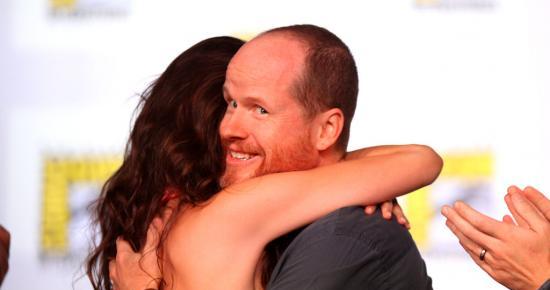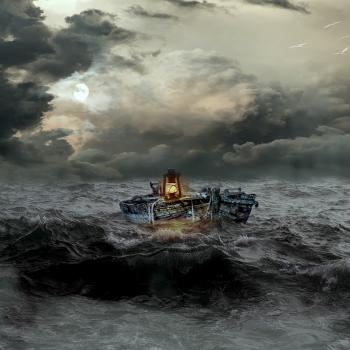Joss admitted that for the next decade and a half, he hid multiple affairs and a number of inappropriate emotional ones that he had with his actresses, co-workers, fans and friends, while he stayed married to me. … He wanted it all; he didn’t want to choose, so he accepted the duality as a part of his life.
For those who don’t see the contradiction between a man being a feminist and the same man cheating on and lying to his wife–and those (mostly male) voices are there, in the comments boxes–Ms. Cole spells it out for us: there’s no true autonomy where there is dishonesty. If you believe women are equal in dignity and worth, able to make their own decisions—if you believe full consent is essential to both marriages and sexual encounters—then you must be honest about what is being chosen, what is being consented to. You can’t infantilize your spouse by hiding things to protect them or yourself from the likely consequences of your own actions.
…Despite understanding, on some level, that what he was doing was wrong, he never conceded the hypocrisy of being out in the world preaching feminist ideals, while at the same time, taking away my right to make choices for my life and my body based on the truth. He deceived me for 15 years, so he could have everything he wanted. [My emphasis.]
I wish I were more surprised that a celebrity male “feminist ally” who work has an obvious warrior-woman fetish and whose primary off-camera advocacy and fundraising is in support of abortion availability should turn out to be a sleazy, philandering, deceitful ass in real life.
I wish I were more surprised.
But I’m not.
Conservatives have been saying for many years that the stripping away of traditional sexual mores has done a disservice to women. There’s truth in that.
Second wave feminists have been inclined to see sexual power struggles as a microcosm of wider social conflicts between men and women. There’s truth in that.
New Wave feminists have noted that the availability and social acceptance of abortion can serve to unfairly foist the consequences of men’s sexual choices onto women and serve to conceal and enable male exploitation of women’s sexuality. There’s truth in that, as well.
Even women who whole-heartedly endorse “sex-positive” grrrl-power feminism and who are unconflicted about legalized abortion—the demographic Whedon most assiduously courted in his politics and personal branding as a “male feminist”–are wearying of the “male ally” who says all the right things and uses all the right words, and then tramples over individual women’s boundaries in ways that feel more exploitative than straight-forward male chauvinism ever did.
But I lost my appetite for scoring points when I saw that the fan site Whedonesque shut down in the wake of this damning essay. Whatever my personal wariness of Whedon’s politics, I don’t want to forget that there are people who genuinely looked up to him and found inspiration and comfort in his advocacy for things they believe in.
I know how that feels. Don’t we all?

Past the particulars of the misogynistic male ally and the ways “sex-positivity” invites sexual exploitation, there’s a harder and more universally applicable lesson here, one that Whedon’s feminist fans are learning now–one I think a lot of Catholics learned during the sex abuse crisis when we saw our Bishops’ clay feet, or during Fr. Corapi’s meltdown, or are learning now in the wake of Charlottesville as the tension brings out both the best and the worst in people–but not necessarily the people we expected.
If we want to love truth and goodness, we need to kill our heroes.
Not that we should dedicate ourselves to taking potshots, literally or figuratively, at the people we or others admire. That would take the wheat of a love of truth and turn it into a weed, to borrow Simcha’s imagery. If you train yourself to look first for hidden sin, you may end up seeing it when it isn’t there–or becoming blind to virtue and truth where they so often exist, lying alongside vice and error.
But we need to be wary of making the inverse mistake of justifying, ignoring, denying, or revising facts that contradict the things we wish to believe about the people we admire, identify with, and look up to. We have to beware the temptation to turn real people into plaster saints.
Christ tells us, “No one is Good but God alone.”
When your heroes come from stories—fictional characters whose entire purpose is to demonstrate an idea or represent an ideal or present a picture of how human life might be lived—then there is nothing to interfere with your pedestal building and no truth to consult except the truth of the role the story plays in your life and your identity.
But when you flatten other human beings out into paper heroes or villains–black and white pieces on a world-scale gameboard or caricatures playing on a global stage–you violate something more important and more true than any use their story has to your personal sense of your own identity and place in the world.
You violate the real person–unique, complex, and contradictory–that your hero-worship has flattened and used.
It is human to look up to some people, and look down on others. But we know that “many who are first will be last, and the last first.” It shouldn’t surprise us to find vice or virtue in the last place we would look for it.
Admire virtue, even in your opponents and enemies. Reject vice, even in your allies and friends.
Love truth.
And be gracious when someone else’s hero tumbles down.
Image credit: Photo of Joss Whedon and Summer Glau by Gage Skidmore from Peoria, AZ, United States of America [CC BY-SA 2.0] via Wikimedia Commons.













